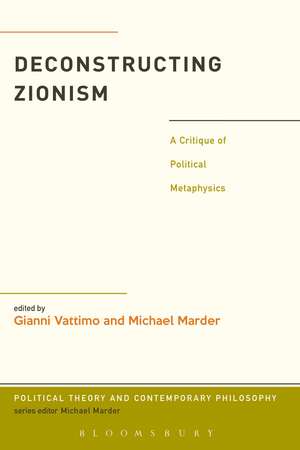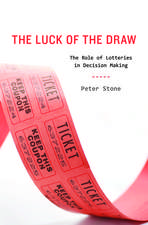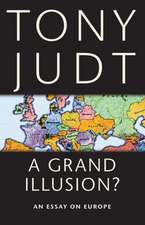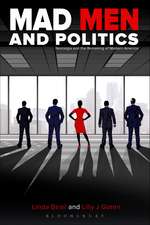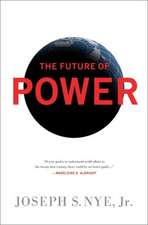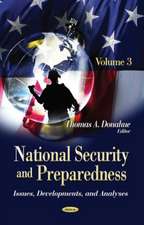Deconstructing Zionism: A Critique of Political Metaphysics: Political Theory and Contemporary Philosophy
Editat de Gianni Vattimo, Dr. Michael Marderen Limba Engleză Paperback – 15 ian 2014
| Toate formatele și edițiile | Preț | Express |
|---|---|---|
| Paperback (1) | 190.96 lei 6-8 săpt. | |
| Bloomsbury Publishing – 15 ian 2014 | 190.96 lei 6-8 săpt. | |
| Hardback (1) | 713.72 lei 6-8 săpt. | |
| Bloomsbury Publishing – 15 ian 2014 | 713.72 lei 6-8 săpt. |
Din seria Political Theory and Contemporary Philosophy
- 14%
 Preț: 192.73 lei
Preț: 192.73 lei - 23%
 Preț: 191.13 lei
Preț: 191.13 lei - 30%
 Preț: 540.80 lei
Preț: 540.80 lei - 13%
 Preț: 239.59 lei
Preț: 239.59 lei - 13%
 Preț: 237.75 lei
Preț: 237.75 lei - 13%
 Preț: 257.50 lei
Preț: 257.50 lei - 22%
 Preț: 256.29 lei
Preț: 256.29 lei - 22%
 Preț: 258.77 lei
Preț: 258.77 lei - 30%
 Preț: 774.20 lei
Preț: 774.20 lei - 23%
 Preț: 178.36 lei
Preț: 178.36 lei -
 Preț: 239.59 lei
Preț: 239.59 lei - 14%
 Preț: 191.13 lei
Preț: 191.13 lei - 13%
 Preț: 257.41 lei
Preț: 257.41 lei - 22%
 Preț: 225.12 lei
Preț: 225.12 lei - 23%
 Preț: 222.84 lei
Preț: 222.84 lei - 21%
 Preț: 217.62 lei
Preț: 217.62 lei - 24%
 Preț: 188.01 lei
Preț: 188.01 lei - 30%
 Preț: 510.34 lei
Preț: 510.34 lei - 30%
 Preț: 511.81 lei
Preț: 511.81 lei - 18%
 Preț: 599.17 lei
Preț: 599.17 lei
Preț: 190.96 lei
Nou
Puncte Express: 286
Preț estimativ în valută:
36.55€ • 39.72$ • 30.72£
36.55€ • 39.72$ • 30.72£
Carte tipărită la comandă
Livrare economică 21 aprilie-05 mai
Preluare comenzi: 021 569.72.76
Specificații
ISBN-13: 9781441105943
ISBN-10: 1441105948
Pagini: 208
Dimensiuni: 152 x 229 x 28 mm
Greutate: 0.32 kg
Editura: Bloomsbury Publishing
Colecția Bloomsbury Academic
Seria Political Theory and Contemporary Philosophy
Locul publicării:New York, United States
ISBN-10: 1441105948
Pagini: 208
Dimensiuni: 152 x 229 x 28 mm
Greutate: 0.32 kg
Editura: Bloomsbury Publishing
Colecția Bloomsbury Academic
Seria Political Theory and Contemporary Philosophy
Locul publicării:New York, United States
Caracteristici
Integrates the theory and practice of opposing state violence and oppressive collective identity formation
Notă biografică
Gianni Vattimo is emeritus professor of philosophy at the University of Turin and a member of the European Parliament. He is the author of Hermeneutic Communism (co-authored with S. Zabala), A Farewell to Truth; The Responsibility of the Philosopher; Christianity, Truth, and Weakening Faith (with R. Girard); Not Being God: A Collaborative Autobiography (with P. Paterlini); Art's Claim to Truth; After the Death of God (with John D. Caputo); Dialogue with Nietzsche; The Future of Religion (with Richard Rorty); Nihilism and Emancipation: Ethics, Politics, and Law; and After Christianity.Michael Marder is Ikerbasque Research Professor in the Department of Philosophy at the University of the Basque Country, Vitoria-Gasteiz. He is the Associate Editor of Telos: A Quarterly Journal of Critical Thought and the author of The Event of The Thing: Derrida's Post-Deconstructive Realism (2009).
Cuprins
Introduction: "If not now, when?"Gianni Vattimo & Michael Marder Chapter 1: Anti-Semitism and Its TransformationsSlavoj Zizek Chapter 2: How to Become an Anti-ZionistGianni Vattimo Chapter 3: Is Judaism Zionism? Or, Arendt and the Critique of the Nation-StateJudith Butler Chapter 4: Decolonizing the Nation-State: Zionism in the Colonial Horizon of ModernityWalter Mignolo Chapter 5: Karl Marx and Hannah Arendt on the Jewish Question: Political Theology as a CritiqueArtemy Magun Chapter 6: Notes on the Prophetic Instability of ZionismMarc H. Ellis Chapter 7: The Spirit of Zionism: Derrida, Ruah, and the Purloined BirthrightChristopher Wise Chapter 8: Rex, or the Negation of WanderingRanjana Khanna Chapter 9: The Hermeneutical Stance: Being Discharged at the Margins of Political ZionismSantiago Zabala Chapter 10: The Zionist SynecdocheMichael Marder Chapter 11: Sharing Humanity: Towards Peaceful Coexistence in DifferenceLuce IrigarayIndex
Recenzii
Deconstructing Zionism is by turn spectacular, compelling, difficult and tangential. For a practical-minded reader of politics, the contributions discussed here count amongst the best.
As timely as one can get...Deconstructing Zionism serves as an important reminder that Zionism as such can never be simply deconstructed (indeed, the title of the volume is not Zionism Deconstructed), or its ideology set aside. Its appeal remains strong if not blinding. And as long as injustice for the Palestinians continues, Zionism will be there to justify the status quo, to deflect blame onto the other -whence the need for deconstructing it.
A volume of eleven essays edited and introduced by a prominent Italian philosopher and public intellectual (Vattimo) and a polymathic young academic (Marder), Deconstructing Zionism is admirable for the revealing light through which it re-reads a phenomenon that, as the book's title aptly suggests, exemplifies the seemingly inextricability of politics from metaphysics - Zionism.
[A] welcome addition to the critique of Zionism.
To open, to disassemble, to examine of what the assemblage is made. To think its conditions, its stakes, its possible or vanished meaning anew. That is what 'deconstruction' means. It arises from a real consideration, in the strongest sense, of the chosen object. Today, it is obviously necessary to make Zionism that object, among others-not only the word itself but also all the significations it carries. That is why one must salute the initiative behind this book.
This unique book includes perceptive analyses of Zionism by some of today's leading philosophers. A 'must read' for anyone seeking the theoretical tools to address the conflict in the Middle East and committed to global social justice.
For those of us who believe that the political and moral health of the global world depends on a just and fair solution to the problems that beset Palestine/Israel, this book is an illuminating contribution. These essays written by diverse and gifted hands explore the politics of nationhood and territorial coexistence from a plurality of philosophical, theological, and secular perspectives. The most interesting essays lead us towards the condition of the Middle East via a reflection on other political situations defined by proximity, ambivalence, and antagonism. This is an ambitious and engrossing volume.
As timely as one can get...Deconstructing Zionism serves as an important reminder that Zionism as such can never be simply deconstructed (indeed, the title of the volume is not Zionism Deconstructed), or its ideology set aside. Its appeal remains strong if not blinding. And as long as injustice for the Palestinians continues, Zionism will be there to justify the status quo, to deflect blame onto the other -whence the need for deconstructing it.
A volume of eleven essays edited and introduced by a prominent Italian philosopher and public intellectual (Vattimo) and a polymathic young academic (Marder), Deconstructing Zionism is admirable for the revealing light through which it re-reads a phenomenon that, as the book's title aptly suggests, exemplifies the seemingly inextricability of politics from metaphysics - Zionism.
[A] welcome addition to the critique of Zionism.
To open, to disassemble, to examine of what the assemblage is made. To think its conditions, its stakes, its possible or vanished meaning anew. That is what 'deconstruction' means. It arises from a real consideration, in the strongest sense, of the chosen object. Today, it is obviously necessary to make Zionism that object, among others-not only the word itself but also all the significations it carries. That is why one must salute the initiative behind this book.
This unique book includes perceptive analyses of Zionism by some of today's leading philosophers. A 'must read' for anyone seeking the theoretical tools to address the conflict in the Middle East and committed to global social justice.
For those of us who believe that the political and moral health of the global world depends on a just and fair solution to the problems that beset Palestine/Israel, this book is an illuminating contribution. These essays written by diverse and gifted hands explore the politics of nationhood and territorial coexistence from a plurality of philosophical, theological, and secular perspectives. The most interesting essays lead us towards the condition of the Middle East via a reflection on other political situations defined by proximity, ambivalence, and antagonism. This is an ambitious and engrossing volume.
